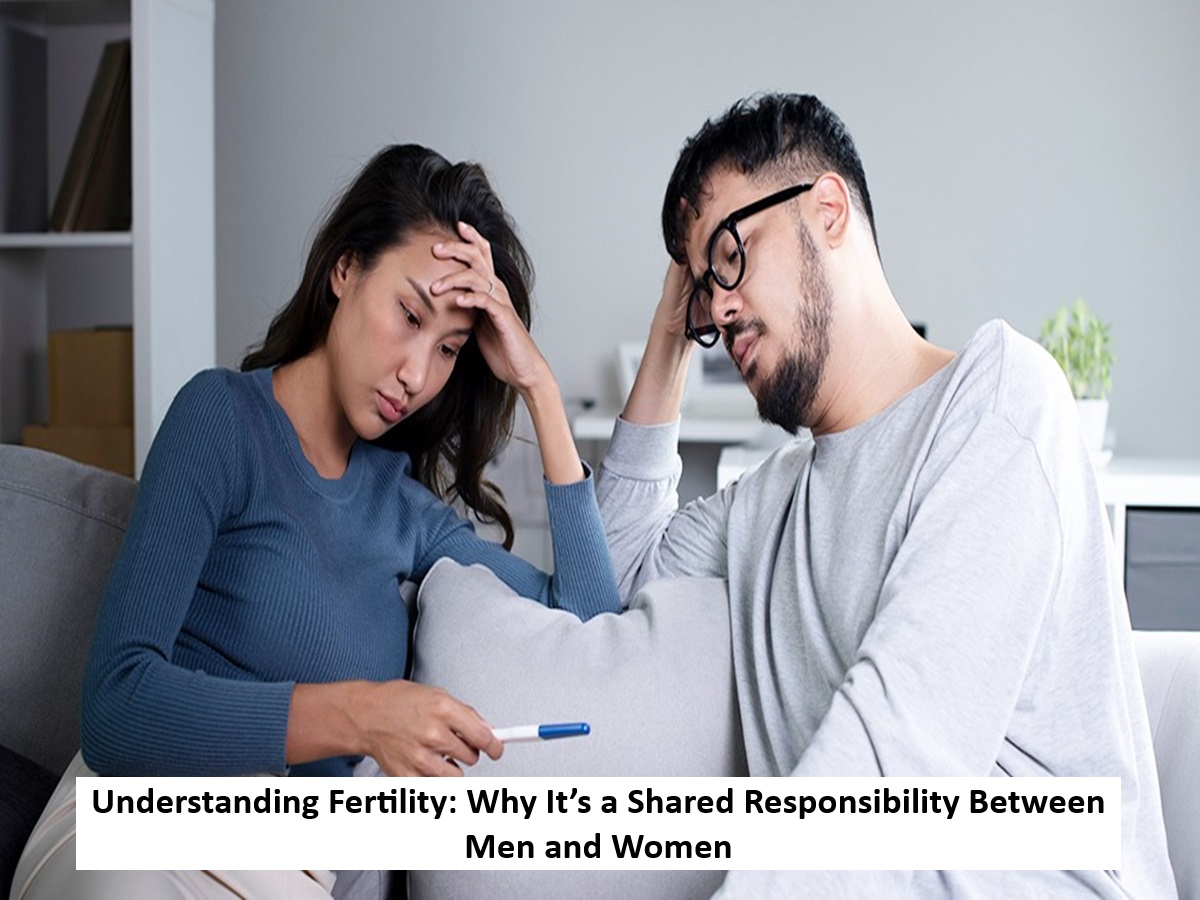Suspense crime, Digital Desk : It is an outdated notion that suggests only women carry the burden of fertility issues. There is overwhelming evidence supporting the fact that both men and women equally share the responsibility of fertility, impacted by numerous factors pertaining to both genders. Dr.
Rohan Palshetkar, the Head of Unit at Bloom IVF and Professor at DY Patil School of Medicine, states that factors affecting fertility can start much earlier than people expect. In his explanation, “The quality of the eggs and sperms can start depreciating as early as in your late twenties, not only during your thirties.” The Influence of Age on Fertility A crucial role is served by age: Women undergo an inherent reduction in the number and quality of eggs, while Men suffer from decreased sperm count, motility, and the integrity of DNA in their sperm with aging.

Dr. Palshetkar further states, “Men do not escape the impediments to fertility; they are as equally impacted by the challenges of age and lifestyle.” How a lifestyle can impact fertility.
Biological aging is not the sole factor affecting fertility; there are numerous other choices that can affect the odds. Some of the most important include: Stress - It leads to an imbalance in hormone levels, thus impacting ovulation and testosterone production. Weight - Whether obese or underweight, they can hinder the production of hormone.
Sleep - Irregular sleeping patterns can disrupt the normal cycles of hormones, thus impacting fertility. Diet and toxins - Smoking and alcohol, along with a poor diet, cause immense damage to the ability to reproduce. Dr.
Palshetkar emphasizes, "When it comes to fertility, what you consume, how you sleep, and avoiding harmful substances are vital steps towards its preservation." 9 Key Factors That Impact Fertility In the opinion of Dr. Palshetkar, the following are major considerations concerning the factors that influence fertility: Age Matters Both sperm and egg grades become obsolete as one ages.
Men encounter degrading sperm health, which impairs fertility. Stress Factors There are several stressors which have a chronic effect on the body, creating an imbalance within hormones. Testosterone in men and ovulation in women tend to take a hit.
Weight and hormone equilibrium Unhealthy weights can cause irregular ovulation and decreased sperm mobility. Disordered Sleep Failure to achieve adequate rest results in the distrubance of the regulation of hormones, which in turn affects the standard of eggs and sperm. Nutrients and Micro Elements Infertility is linked with the lack of reproductive health which may be caused by underlying conditions such as the absence of important vitamins such as folate, vitamin D, and zinc.
Smoking and Alcohol Greatly endanger the fundamental structure of the egg and sperm DNA giving rise to difficulties in fertility. Environmental Aspects Hormones may be disrupted by substances from cosmetics, plastics, and even household items. Fertility, It a Shared Responsibility Close to half of the recorded cases of infertility stems from male contributions.
Both partners’ deserve testing and adjusting their lifestyle to regain balanced health. Timing Matters It is vital to establish the optimal period when a woman can comfortably get pregnant. Improved chances of chances of success are made possible with further meeting specialists prior to conception.
Early Awareness Makes a Difference Timely executory adjustments aimed at improving fertility outcome aids both genders. Understanding these executory measures enhances fertility outcomes. The journey to starting a family is, in essence, a combined effort.
Read More: Why Additive-Free Eating Is Becoming Essential for Better Health.
















